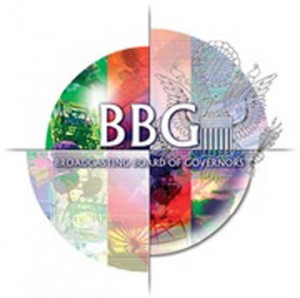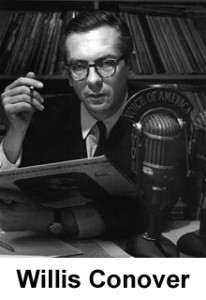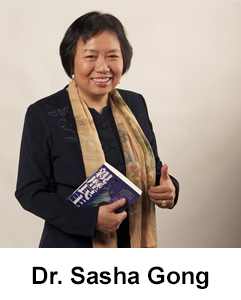The following blog is abstracted from “The Influence of 20th Century Technology (Part II)” from my forthcoming book Jazz in the Land of Dragon.
On December 27, 2012, The Voice of America (VOA) will celebrate the 71st anniversary of the first U.S. radio broadcasts to China, which began on the 28th of December 1941, just weeks after the Japanese attack on Pearl Harbor and the start of World War II. Voice of America was still months away from being officially established when the first Chinese language shortwave broadcasts were transmitted from studios in San Francisco. U.S. government broadcasting operations to China were eventually moved to New York and then Washington under the Voice of America. VOA programs in Mandarin, Cantonese and Tibetan are delivered on radio, television, the Internet, mobile platforms, satellite, and by proxy servers designed to circumvent Chinese Internet blocking. VOA English language teaching programs, including the social media sensation, OMG! Meiyu, enjoy a large audience in China.
 Voice of America (VOA) is the official external broadcast institution of the United States federal government. It is one of five civilian U.S. international broadcasters working under the umbrella of the Broadcasting Board of Governors (BBG). VOA provides a wide range of programming for broadcast on radio and TV and the Internet outside of the U.S. in 43 languages. VOA produces about 1,500 hours of news and feature programming each week for an estimated global audience of 123 million people, “to promote freedom and democracy and to enhance understanding through multimedia communication of accurate, objective, and balanced news, information and other programming about America and the world to audiences overseas.”
Voice of America (VOA) is the official external broadcast institution of the United States federal government. It is one of five civilian U.S. international broadcasters working under the umbrella of the Broadcasting Board of Governors (BBG). VOA provides a wide range of programming for broadcast on radio and TV and the Internet outside of the U.S. in 43 languages. VOA produces about 1,500 hours of news and feature programming each week for an estimated global audience of 123 million people, “to promote freedom and democracy and to enhance understanding through multimedia communication of accurate, objective, and balanced news, information and other programming about America and the world to audiences overseas.”
Its day-to-day operations are supported by the International Broadcasting Bureau (IBB). VOA radio and television broadcasts are distributed by satellite, cable and on FM, AM, and shortwave radio frequencies. They are streamed on individual language service websites, social media sites and mobile platforms. VOA has more than 1,200 affiliate and contract agreements with radio and television stations and cable networks worldwide.
Alan Heil, author of Voice of America: A History writes: “Over the years, the music gurus of the Voice have attempted to offer a full range of American music and, in some regions, indigenous songs and ballads to an eager listening public around the world. The best known VOA effort, clearly, has centered on jazz, that unique blend of ragtime and blues combining American with African and Caribbean musical traditions. It also became celebrated in much of the twentieth century as the ‘music of freedom’.”
 Jazz programming has been a steady aspect of VOA’s programming. The Voice of America Jazz Hour was broadcast on Voice of America beginning on January 6, 1955 through 2003; it was then folded into Voice of America Music Mix’s program Jazz America. It began broadcasting in 1955, hosted by Willis Conover; in its current form, it is hosted by Russ Davis. It began broadcasting in 1955 over the initial objections of Congress. The program’s theme song was Duke Ellington’s “Take the A Train.” At its height, the Voice of America Jazz Hour was listened to by up to 30 million people, almost none of them in the United States, as Voice of America was prohibited from broadcasting in the United States by the Smith-Mundt Act. As jazz was frequently banned in the Soviet Union and countries sympathetic to its views, Voice of America was often the only way people in those countries could listen to jazz, and Willis Conover’s politics-free broadcasts are widely credited for keeping interest in jazz active in Soviet satellite states.
Jazz programming has been a steady aspect of VOA’s programming. The Voice of America Jazz Hour was broadcast on Voice of America beginning on January 6, 1955 through 2003; it was then folded into Voice of America Music Mix’s program Jazz America. It began broadcasting in 1955, hosted by Willis Conover; in its current form, it is hosted by Russ Davis. It began broadcasting in 1955 over the initial objections of Congress. The program’s theme song was Duke Ellington’s “Take the A Train.” At its height, the Voice of America Jazz Hour was listened to by up to 30 million people, almost none of them in the United States, as Voice of America was prohibited from broadcasting in the United States by the Smith-Mundt Act. As jazz was frequently banned in the Soviet Union and countries sympathetic to its views, Voice of America was often the only way people in those countries could listen to jazz, and Willis Conover’s politics-free broadcasts are widely credited for keeping interest in jazz active in Soviet satellite states.
Conover was apparently a force to be reckoned with. In Heil’s book covering the history of VOA, he recounts: “If Conover has been a prophet unheard in his own land,” Down Beat magazine said, “he has been a messiah ‘round the globe, the best-known and best-loved ambassador for America’s art form since Louis Armstrong and Dizzy Gillepsie. Heil further writes: “Jazz touched the lives of professionals other than musicians. The music stirred souls in countries where it was officially considered ‘decadent’ and ‘forbidden fruit.” This last observation is a probable reference to the former Soviet Union, and, by extension, Communist China under Mao.
Willis Conover was on the air during the administrations of eight U.S. presidents, and he was the master of ceremonies at White House concerts for several of them. “Every emotion—love, anger, joy, sadness,” he once said “can be communicated with the vitality and spirit that characterizes jazz and our country at its best, which, of course, is the same freedom that people everywhere should enjoy.” Conover died in 1996, but the jazz programming continues.
 There was a brief attempt by the Broadcasting Board of Governors to shut down the VOA China branch in 2011. Thanks to numerous protests in China (yes, people there have been listening) and in the United States and members of Congress from both sides of the aisle, it didn’t happen. Moreover, in 2012, mainland China-born Dr. Sasha Gong (who spent a year in a Chinese jail for her anti-government views) became the first Asian-American to become chief of the VOA China Branch. That’s progress.
There was a brief attempt by the Broadcasting Board of Governors to shut down the VOA China branch in 2011. Thanks to numerous protests in China (yes, people there have been listening) and in the United States and members of Congress from both sides of the aisle, it didn’t happen. Moreover, in 2012, mainland China-born Dr. Sasha Gong (who spent a year in a Chinese jail for her anti-government views) became the first Asian-American to become chief of the VOA China Branch. That’s progress.
Please write to me at meiienterprises@aol.com if you have any comments on this or any other of my blogs.
Eugene Marlow, Ph.D.
December 10, 2012
Sources for this Blog:
http://en.wikipedia.org/wiki/Voice_of_America_Jazz_Hour
http://www.bbg.gov/press-release/voa-marks-70th-year-of-us-broadcasts-to-china/
http://www.cusib.org/cusib/2011/12/19/voice-of-america-supporters-in-china-say-voa-radio
http://www.asianfortunenews.com/article_0312.php?article_id=26
© Eugene Marlow 2012


